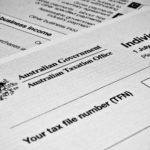The Offence of Tax Fraud in Australia

A Sydney businessman has been sentenced to seven years and six months behind bars, with a minimum term of five years, for his role in one of Australia’s largest even tax fraud schemes.
37-year old Simon Anquetil is the founder and CEO of payroll outsourcing company, Plutus Payroll, which siphoned off at least $105 million in pay-as-you-go tax between 2014 and 2017 through a complicated scheme involving numerous other companies.
Mr Anquetil pleaded guilty to one count of conspiring to defraud the Commonwealth and one of dealing with the proceeds of crime.
During the sentencing hearing in the Supreme Court of NSW on Friday, 31 July 2020, Justice Payne remarked:
“The tax fraud conspiracy is objectively one of the most serious offences of its kind to come before a court in this country.”
“The injury suffered by this offending is a collective financial injury suffered by all Australians.”
“The loss to the Commonwealth of over $100 million will need to be made up from additional taxes levied on other taxpayers or by cuts to government spending.”
His Honour found that the scheme involved a, “very high level of sophistication, premeditation, planning and very significant degree of dishonesty”.
Mr Anquetil was sentenced as the scheme’s “principal conspirator” and is the fifth co-accused to be sentenced, his predecessors receiving four and a half years, four years, three years and two years and three months behind bars.
Tax fraud offences in Australia
The payment of taxation is primarily regulated by the Excise Act 1901, Taxation Administration Act 1953 and Criminal Code Act 1995 – all of which are Commonwealth laws which apply across Australia.
The main offences for prosecuting tax fraud, also known as tax evasion, are contained in sections 134.1(1), 134.2(1) and 135.4(3) of the Criminal Code Act (the Act), all of which carry maximum penalties of 10 years in prison.
Section 134.1(1) is headed ‘Obtaining property by deception’ and stipulates that a person is guilty of this offence if:
- the person, by a deception, dishonestly obtained property belonging to another with the intention of permanently depriving the other of the property, and
- the property belonged to a Commonwealth entity.
To establish the offence, the prosecution is therefore required to prove each of the following ‘elements’ beyond a reasonable doubt:
- The defendant acted dishonestly, and
- Engaged in a deceptive act, which
- Resulted him or her obtaining property, such as funds or assets,
- That property belonged to a Commonwealth entity, and
- The defendant intended to permanently deprive the owner of the property.
The defendant is not guilty if the prosecution is unable to prove all of those elements.
Section 134.2(1) of the Act is titled ‘Obtaining financial advantage by deception’ and provides that a person is guilty of this offence if:
- the person, by a deception, dishonestly obtained a financial advantage from another person, and
- the other person was a Commonwealth entity.
Section 135.4(3) is headed ‘Conspiracy to defraud’ and states that a person is guilty of this offence if:
- the person conspired with another person with the intention of dishonestly causing a loss to a third person, and
- the third person was a Commonwealth entity.
Subsection 135.4(4) makes clear that to be convicted of the offence, it is not necessary for the prosecution to prove that the defendant knew the third person was a Commonwealth entity.
Alternative offence
An alternative to the above offences is contained in section 135.2(1) of the Act, which is titled ‘Obtaining financial advantage’ and carries a much lower maximum penalty – 12 months rather than 10 years in prison.
A person is guilty of obtaining a financial advantage if the prosecution can prove beyond reasonable doubt that:
- the person engaged in conduct as a result of which he or she obtained a financial advantage for himself or herself from another person,
- the person knew or believed he or she was not eligible to receive that financial advantage, and
- the other person was a Commonwealth entity.
Where the prosecution case for tax fraud appears to be strong, a defence lawyer may be able to have an offence which attracts a maximum penalty of 10 years in prison withdrawn and replaced by this less-serious offence.
Duress
Over and above having to prove each of the essential ingredients of a tax fraud offence, the prosecution must also disprove beyond reasonable doubt any legal defence that is validly raised.
One of the defences to tax fraud offences is duress, which is essentially where you are forced to commit the offence under a serious threat, you do not have a reasonable way out and the threat is so serious that it is deemed to justify your conduct.
Suspected of tax fraud?
If you have been accused of evading tax, call Sydney Criminal Lawyers anytime on (02) 9261 8881 to arrange a conference with an experienced defence lawyer who will be able to advise you about how the law applies to your particular situation, your options and the best way forward.
A good criminal defence lawyer may be able to persuade the Australian Taxation Office or the Commonwealth Office of the Director of Public Prosecutions not to commence proceedings in the first place, or have them withdrawn or downgraded, or dismissed if the case proceeds to a court hearing.






